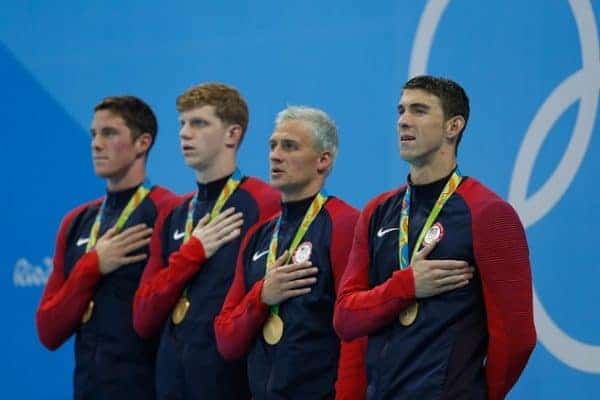

The Olympics are for rich white people. That’s the takeaway from a new study into the matter.
As everyone knows, the Olympic Games are founded on some pretty lofty principles. The “spirit of the Olympics” is the oft-used phrase whenever an athlete stops to help up a fallen competitor or when an event features the full range of humanity, from different races, different cultural backgrounds and countries with differing levels of economic development.
The Olympic Charter says as much when it puts the promotion of ethics, cooperation and fair play at the top of its mission list for the International Olympic Committee. The goal of the Olympic Movement, says the IOC is “to contribute to building a peaceful and better world by educating youth through sport practiced without discrimination of any kind and in the Olympic spirit, which requires mutual understanding with a spirit of friendship, solidarity and fair play.”
Lofty, indeed. And yet, inequality, racism and sexism have unfortunately also been common markers throughout the history of the games. Critics point to the origin of the modern Olympics, which they charge stems from a Eurocentric, imperialist perspective, with the games being held more often in Western countries and the kinds of competitions and events more closely representative of Western culture. Others point to the racism and sexism inherent in the coverage of the games, for example, when American track and field athlete Jesse Owens won four gold medals in 1936 and no newspaper in the American South published his picture.
These exclusionary elements to the Olympics are the focus of a new study from DW Lawrence, researcher with the David MacIntosh Sport Medicine Clinic at the University of Toronto, who analyzes the sociodemographic trends concerning athlete participation in the 2014 Sochi Winter Games and the 2016 Rio Summer Games and concludes that participation in the games is skewed in favour of white and privileged athletes.
Looking at the personal details concerning all of the athletes attending the two games from four countries (Canada, United States, Great Britain and Australia), Lawrence found that of the 568 winter and 1643 summer athletes, the percentage of white athletes and athletes who received a private education were far out of proportion with the demographics of each country.
The results showed that 30.3 per cent of winter and 32.7 per cent of summer athletes were private school educated and 94.9 per cent of winter and 81.7 per cent of summer athletes were white. Lawrence writes that this clearly exposes “an over-representation of white and privately educated athletes” in the games.
“Overall, there is a more favourable and representative distribution of race and wealth in summer Olympic athletes; however, sport-specific differences were identified,” says Lawrence. “Equestrian, modern pentathlon, road cycling, rowing and sailing demonstrated biases towards white and privately educated athletes. Conversely, athletics, basketball, gymnastics, taekwondo, table tennis and judo demonstrated bias favouring non-white and non-privately educated athletes.”
Lawrence points out that issues like racism and class discrimination in the Olympics are not merely a matter of concern for the games themselves but are important because of the emphasis that countries like Canada place on Olympic participation, for example, in support of national health and physical education programs.
“Given that many countries, including Canada, provide significant public financial support for Olympic sports and athletes, identifying any disproportionate representation and potential exclusionary elements is critical,” says Lawrence.
The new study is published in the journal Public Health.
Leave a Reply
You must be logged in to post a comment.




 Share
Share Tweet
Tweet Share
Share




Comment